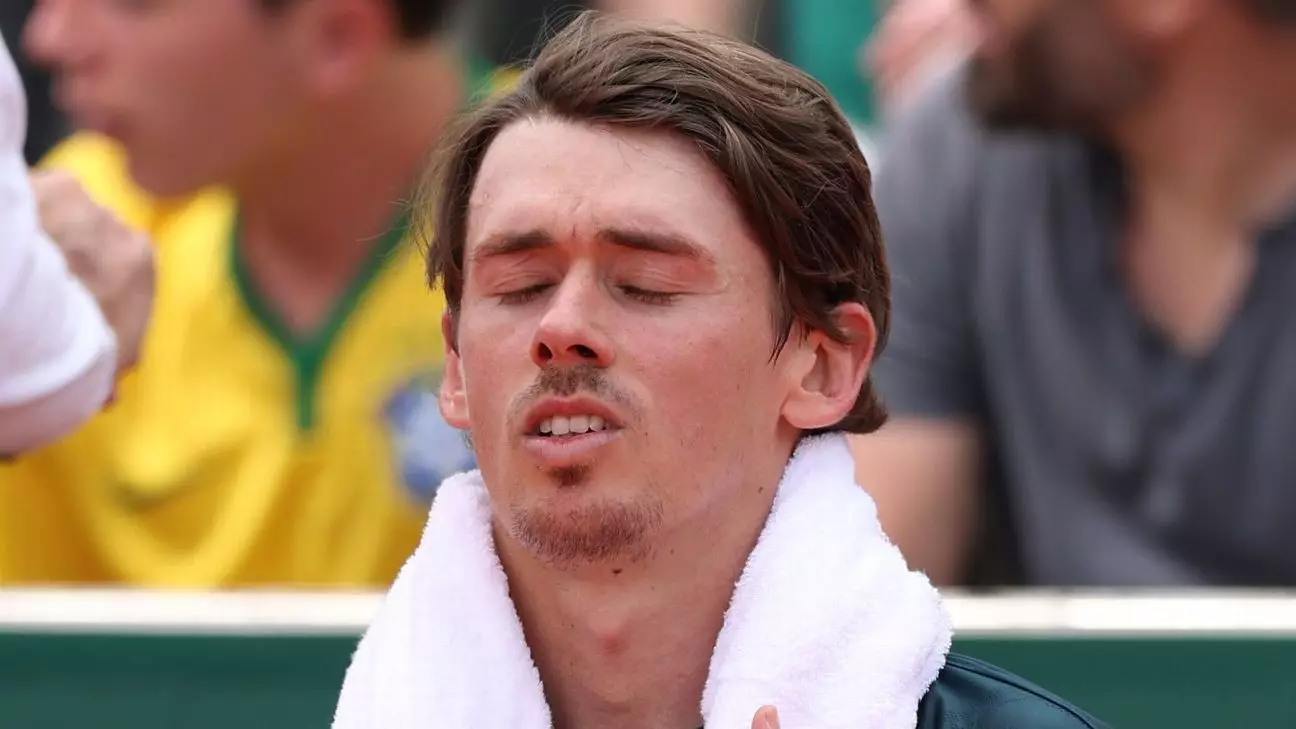Tennis, a sport historically associated with grace and endurance, currently finds itself at a crossroads, grappling with the ever-increasing tension between the demands of its grueling calendar and the inherent well-being of its players. Last week, Alex De Minaur’s early exit from the French Open echoed this urgent need for change, as he voiced concerns about the physical and mental toll that an unrelenting schedule is taking on athletes. With the season commencing almost immediately after the Davis Cup Finals in Spain, players are left bearing the weight of a marathon of competitions that seems to have no end. De Minaur’s candid remarks highlight a perspective that many in the sport are silently enduring yet hesitating to discuss openly.
A Schedule Satire: De Minaur’s Warning
De Minaur’s stark confession that he had merely two days off before plunging into a new season serves as a wake-up call; the current setup is scarcely sustainable. “It’s never-ending,” he lamented, emphasizing how players’ careers could rapidly diminish as burnout threatens to overshadow their aspirations. There is a growing sentiment among competitors that the very structure designed to promote and celebrate their talents is morphing into a formidable obstacle. The message is unequivocal: without significant modifications to the seasonal blueprint, the sport risks losing its finest players to exhaustion—both physically and mentally.
The Rat Race of Rankings: Ruud’s Reality
Casper Ruud’s experience following his own unexpected early exit from the tournament further illustrates this hazardous cycle. Describing the ATP ranking system as a “rat race,” Ruud encapsulated the psychological warfare inflicted upon players. The high-stakes environment, shaped by mandatory events and stringent penalties for absence, creates an environment where healing from injuries may feel indulgent. For Ruud, battling knee pain while grappling with the thought of losing ranking points reflects a concerning reality that may deter growth-centric recovery. The unyielding race for points transforms tennis into less of a sport and more of a competition marked by stress and anxiety.
Mandatory Madness: A Call for Structural Reform
The implications of mandatory events are far-reaching. Players who neglect to participate in such competitions face severe repercussions—losing crucial rankings, potential prize money, and significant cuts to year-end bonuses. Players must weigh the risks of competing while injured against the significant costs of withdrawing. It’s a vicious cycle, one that raises questions about the sport’s governance and the ATP’s responsibility towards its players. Currently, the system incentivizes a culture of overexertion, where health often falls victim to the demands of performance.
Players’ Voices: A Collective Call for Change
De Minaur and Ruud’s outspoken appeals serve not merely as isolated grumblings but rather as a rallying cry for their peers. The dialogue surrounding players’ welfare, mental health, and the sustainability of the sport itself must evolve. It is imperative for tennis’s governing bodies to heed players’ concerns, identifying structural adaptations that prioritize athletes’ longevity in the sport. Players should not have to sacrifice their health for points and bonuses—a paradigm shift is needed.
The Future of Tennis: An Evolving Landscape
While De Minaur and Ruud highlight significant issues, their messages can be advocates for hope and transformation in professional tennis. By reshaping the calendar, prioritizing player well-being, and possibly integrating more flexibility into event participation, tennis has the potential to foster an environment in which players can thrive long-term. The world of tennis must be willing to adapt and innovate, embracing the insights of its athletes to evolve into a healthier sport.
No longer can the players’ voices be drowned out in the rush for profit and spectacle. As the stakes continue to rise in this high-octane sport, it becomes essential that the system reflects a balance that protects not just the sport’s integrity, but the individuals who dedicate themselves to it. A transformative approach is not just desirable; it’s essential.


Leave a Reply